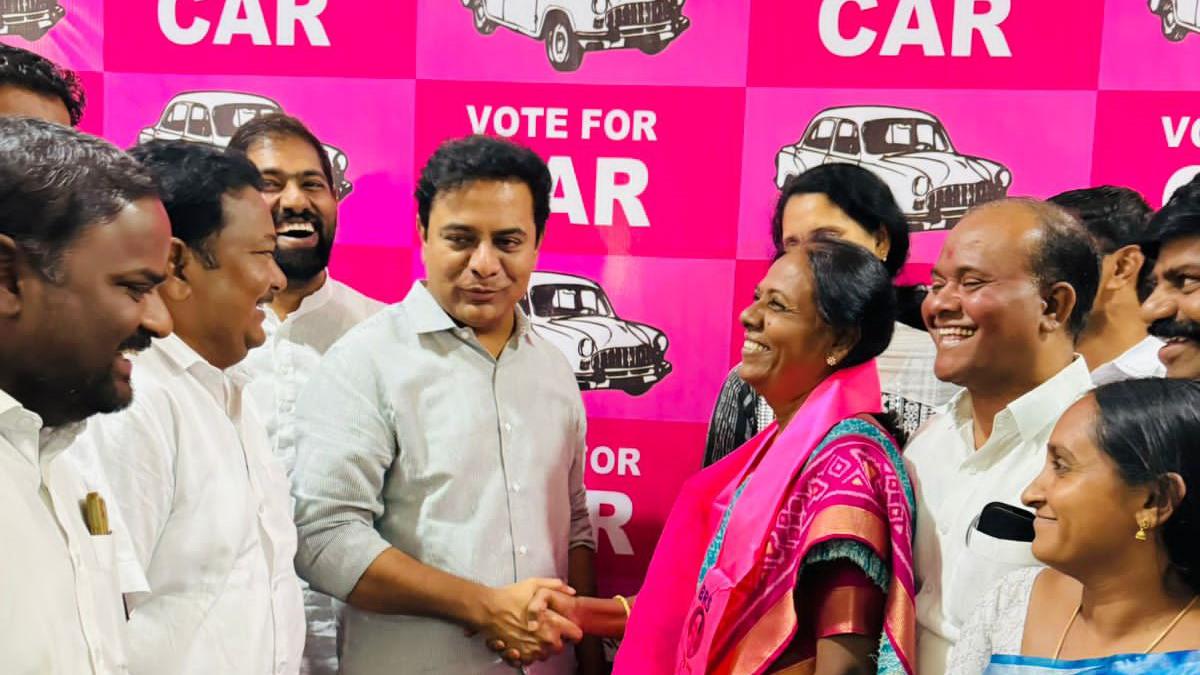
Tula Uma returns to BRS after a gap of over two years
The Hindu
BJP leader Tula Uma re-joined BRS after two years, accusing BJP of injustice to BC leaders. KTR welcomed her back and promised better position and responsibilities.
In a series of shockers before the November 30 polling in Telangana, Bharatiya Janata Party (BJP) leader Tula Uma, who joined that party along with Eatala Rajender in June 2021, returned to Bharat Rashtra Samithi (BRS) after a hiatus of over two years on Monday. Ms. Uma joined BRS she was associated for long formally, along with her supporters.
She held the position as women’s wing president in TRS (now BRS) and was elected as Karimnagar Zilla Parishad Chairperson in the past, before she quit the party along with Mr. Rajender and joined BJP. The BJP has announced her candidature for Vemulwada Assembly Constituency but the B-Form was given to another leader of the party.
Peeved at being ditched by the BJP leadership, Ms. Uma tendered her resignation to the party accusing the party of doing injustice of backward classes leaders working with commitment and ridiculed the BC-Chief Minister slogan of the party. “How could the party which has ditched a BC leader even after announcing the candidature would make a BC Chief Minister”, she sought to know in her resignation letter and vowed to work for the Vemulawada people and Golla and Kuruma communities.
Speaking after welcoming back Ms. Uma along with her supporters into BRS, working president of the party K.T. Rama Rao said it was unfortunate that the BC community leader was denied an opportunity to contest the Assembly election even after announcing her name. KTR said that on the instruction of party president and Chief Minister K. Chandrasekhar Rao, he called Ms. Uma over phone and invited her to join BRS.
The party would respect her with better position and responsibilities than the opportunities she was given in the past, he said. Ms. Uma said that BJP was not the party that would stand by its word and only people from upper caste would get better opportunities in that party.
At another event, Mr. Rama Rao said the people of Telangana were well aware as to who had destroyed the State and who was re-building it, and that they were not in a position to believe the false promises of Congress. Speaking after releasing a compilation on “What did the Congress do to Telangana” by Telangana Sahithya Akademi Chairman Juluri Gowrishankar, he said it was the BRS Government that was reviving the community professions by encouraging them.
Mr. Gowrishankar requested implementation of social security pension and free power up to 250 units a month to artisans of Vishwakarma communities which comprises goldsmiths, blacksmiths, carpenters and potters.













